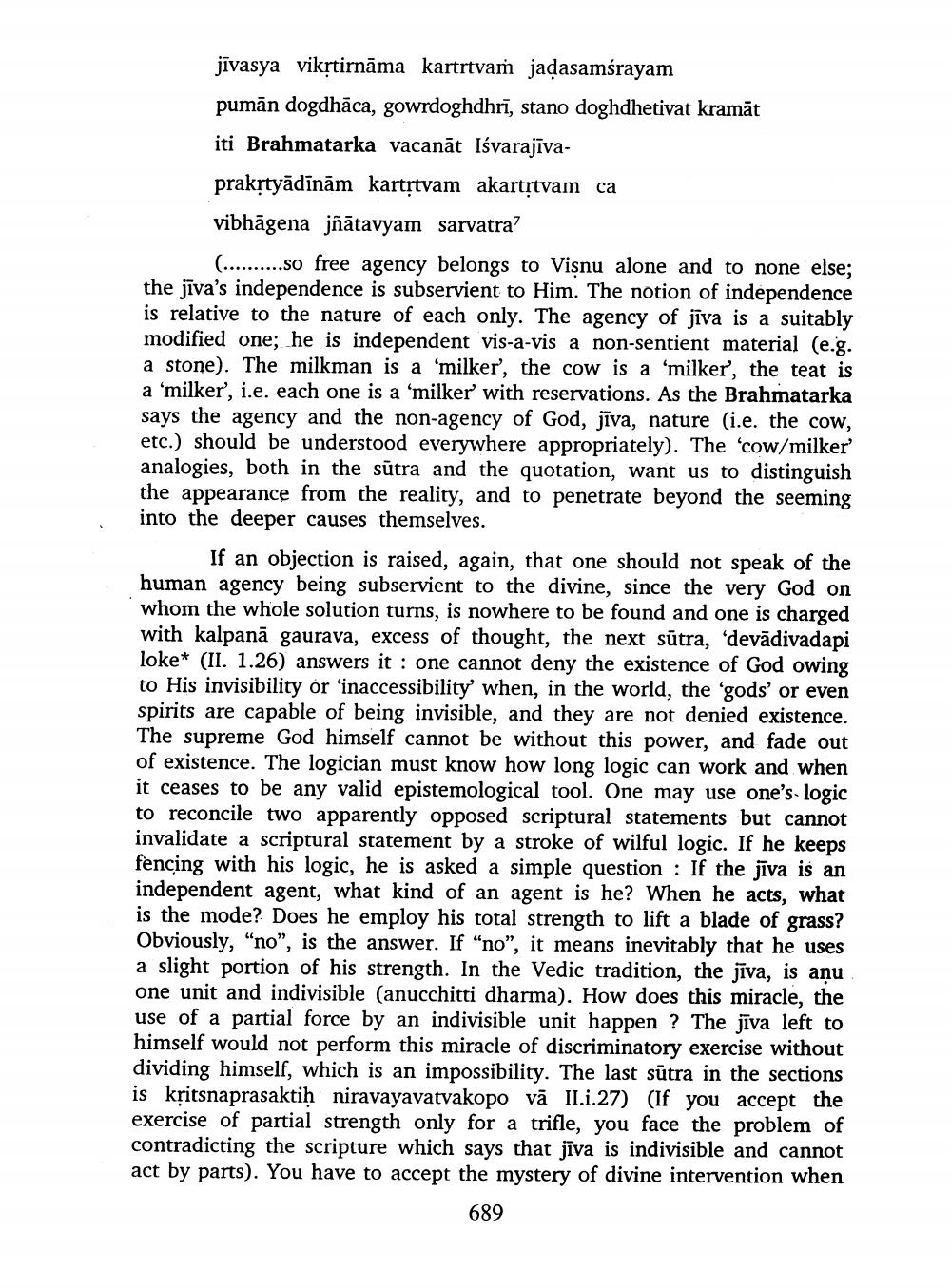________________
jīvasya vikệtirnāma kartrtvam jadasamśrayam pumān dogdhāca, gowrdoghdhrī, stano doghdhetivat kramāt iti Brahmatarka vacanāt Iśvarajīvaprakrtyādīnām kartặtvam akartștvam ca vibhāgena jñātavyam sarvatra?
(..........so free agency belongs to Vişnu alone and to none else; the jīva's independence is subservient to Him. The notion of independence is relative to the nature of each only. The agency of jīva is a suitably modified one; he is independent vis-a-vis a non-sentient material (e.g. a stone). The milkman is a 'milker, the cow is a 'milker', the teat is a 'milker', i.e. each one is a 'milker' with reservations. As the Brahmatarka says the agency and the non-agency of God, jīva, nature (i.e. the cow, etc.) should be understood everywhere appropriately). The 'cow/milker analogies, both in the sūtra and the quotation, want us to distinguish the appearance from the reality, and to penetrate beyond the seeming into the deeper causes themselves.
If an objection is raised, again, that one should not speak of the human agency being subservient to the divine, since the very God on whom the whole solution turns, is nowhere to be found and one is charged with kalpanā gaurava, excess of thought, the next sūtra, 'devādivadapi loke* (II. 1.26) answers it : one cannot deny the existence of God owing to His invisibility or 'inaccessibility when, in the world, the 'gods' or even spirits are capable of being invisible, and they are not denied existence. The supreme God himself cannot be without this power, and fade out of existence. The logician must know how long logic can work and when it ceases to be any valid epistemological tool. One may use one's logic to reconcile two apparently opposed scriptural statements but cannot invalidate a scriptural statement by a stroke of wilful logic. If he keeps fencing with his logic, he is asked a simple question : If the jīva is an independent agent, what kind of an agent is he? When he acts, what is the mode? Does he employ his total strength to lift a blade of grass? Obviously, “no", is the answer. If "no", it means inevitably that he uses a slight portion of his strength. In the Vedic tradition, the jīva, is anu one unit and indivisible (anucchitti dharma). How does this miracle, the use of a partial force by an indivisible unit happen? The jīva left to himself would not perform this miracle of discriminatory exercise without dividing himself, which is an impossibility. The last sūtra in the sections is kritsnaprasaktiḥ niravayavatvakopo vā II.i.27) (If you accept the exercise of partial strength only for a trifle, you face the problem of contradicting the scripture which says that jīva is indivisible and cannot act by parts). You have to accept the mystery of divine intervention when
689




